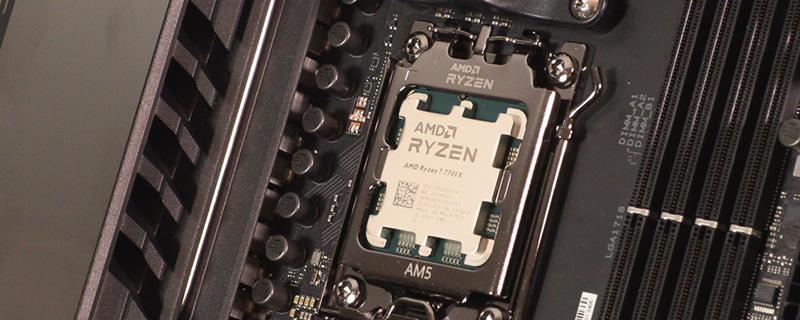AMD Zen 4 Ryzen 7 7700X and Ryzen 9 7950X Review
Conclusion
It’s fair to say that the Ryzen design totally rejuvenated AMD. The first group showed promise, the second iteration refined that formula and by the 3000 series they were a legitimate contender. So much so that the 5000 series saw a huge uptick in the amount of people that had an AMD CPU in their system thanks to its combination of performance and affordability. Being available on the same platform as preceding processors also made it much easier to upgrade too. There are few things worse than buying a new system and having to throw most of it away just to upgrade.
The 7000 series of Ryzen processors come, currently, in four flavours and we have what should be the most popular pairing for you today. Fear not those who want the Ryzen 5 or the more affordable of the two Ryzen 9s though, they’ll be in our hands by the time you’re reading this and a review should be up later in the week. However, we have the 8C16T Ryzen 7 7700X, a replacement for the Ryzen 7 5800X for those who want great affordable gaming but also don’t want to be twiddling their thumbs when editing a video. For those who can’t live without the flagship model in their system the 16C32T Ryzen 9 7950X comes hot on the heels of the Ryzen 9 5950X.
Undoubtedly the headline element of these 7000 series processors is the incredible improvement to both the boost and overall clock speeds. AMD were around the 4.5 GHz mark with the 5000s, but these new 5nm processors easily reach deep past the 5 GHz barrier. We saw 5.5 GHz when using all cores (!) and if left to manage its cores and boost speeds on its own – plug and play so to speak – then the speeds are nothing short of spectacular. Our Ryzen 9 7950X regularly hit 5.8 GHz. What makes this even more impressive is that our time on this particular ASUS ROG Crosshair X670E motherboard made it clear that either the early BIOS or motherboard design itself is actually the limiting factor, and we have no doubt that the 7950X is capable of even more performance than we were able to extract.
Normally we wouldn’t sing the praises of something that nerfed the performance of a product, but we do have to take a moment to applaud the Eco mode that is built in to the 7000 series Ryzen CPUs. As you can see from our results the temperature and power draw of the two aren’t shocking, but neither are they quite where we’d expect given the size of our CPU cooler. However, the Eco mode doesn’t actually affect the performance that badly but has a huge impact on the maximum temperature of our processors. Similarly the Ryzen 9 7950X in Eco mode matches the power draw of the Ryzen 7 7700X whilst still having the performance in Blender or H.265 to smash anything else we’ve seen, including the Intel Core i9-12900KS. That’s massively impressive in anyones book. The only thing we’d like to see is perhaps a toggle for the Eco Mode as a part of the Ryzen Master software, or just a standalone app on your desktop so we don’t keep having to reboot.
The AMD Ryzen 7 7700X is a spectacular all-rounder at a very affordable price tag and the Zen 4 platform comes with all the PCIe 5 and DDR5 goodies one expects from a current system. The Ryzen 9 7950X is all that and more, priced the same as the Ryzen 9 5950X was at launch but totally decimating it, and all others bar the flagship Intel i9 when gaming, in our tests. Such has been the turnaround of the AMD Zen program that we no longer welcome them back, but instead expect nothing less than excellence and receive it.
Ryzen 7 7700X MSRP : £419.99/$399 – Amazon UK Price (Affiliate Link)- £439.99
Ryzen 9 7950X MSRP : £739.99/$699 – Amazon UK Price (Affiliate Link) – £769.99
Discuss the AMD Ryzen 7 7700X and Ryzen 9 7950X in our OC3D Forums.




